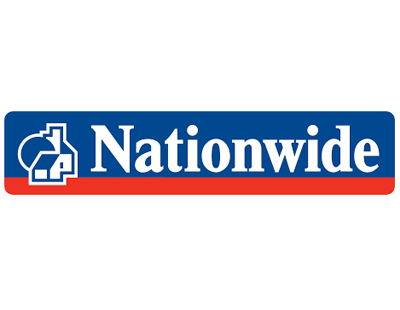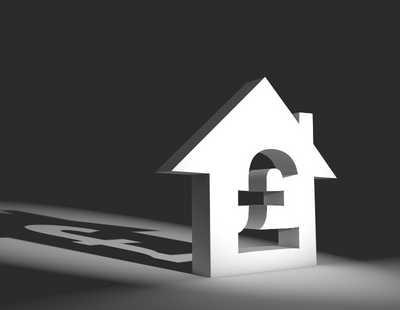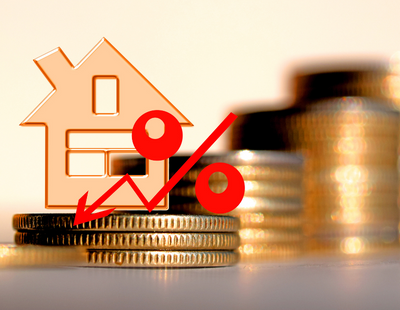Separate analysis by the lender also warns that the increased energy price cap will see homes with the lowest energy performance certificate (EPC) ratings face bill increases of £2,700 annually.
That compares with a £1,000 increase for properties rated A to C and £1,250 for the typical D-rated home.
This will add pressure to household budgets, Nationwide said.
Gardner said: “There are signs that the housing market is losing some momentum, with surveyors reporting fewer new buyer enquiries in recent months and the number of mortgage approvals for house purchases falling below pre-pandemic levels.
“However, the slowdown to date has been modest, and combined with a shortage of stock on the market, has meant that price growth has remained firm.
“We expect the market to slow further as pressure on household budgets intensifies in the coming quarters, with inflation set remain in double digits into next year.
“Moreover, the Bank of England is widely expected to continue raising interest rates, which will also exert a cooling impact on the market if this feeds through to mortgage rates, which have already increased noticeably in recent months.”
Property analyst Neal Hudson, of BuiltPlace, said the economic situation is “getting scary.”
He suggested a lack of sufficient government support for the cost of living crisis, particularly rising energy bills - as well as Bank of England data showing the markets expect the base interest rate to hit 4% - will hit the housing market.
Hudson said: “We expect the impact of higher mortgage rates and the rising cost of living to be seen first in lower activity levels.
“However, the scale of the crisis and the absence of any significant government support makes a large fall in house prices increasingly likely.
“As prospective buyers start to struggle to borrow enough to meet the high price expectations of sellers, activity levels will fall (we are intrigued to know how lenders are adjusting their affordability tests to account for the cost of living crisis.”
He suggested this situation will lead to a stagnating housing market, adding: “While not immediately disastrous for the housing market, it would contribute to a weaker economy through all the various business directly and indirectly associated with housing transactions.
“For it to turn into a crash would require a large number of forced sellers. Unfortunately, the cost of living crisis increasingly looks like it may lead to that.
“House prices are already looking over-valued (by 14% in July). But ever higher mortgage rates will continue to stretch the gap between what sellers want and what mortgage-based buyers can afford. For example, based on our simple model, a mortgage rate of 4% suggests prices would be nearly 40% over-valued. This would require a 28% price fall to get average UK house prices back to an affordable level.”
Despite the gloomy outlook, agents insist the housing market still is still catching up with the wider economy, particularly if buyers try to lock-in mortgage rates before they rise further.
Alex Lyle, director of Richmond estate agency Antony Roberts, said: ‘If we see an increase in supply over the coming weeks then we expect a strong autumn market.
“There is, however, little doubt that the continuing economic challenges are having an impact, with buyers only seeing interest rates heading one way.
'The family house market in particular remained resilient throughout August. While there was precious little new stock, the high volume of deals agreed and new buyer registrations was reassuring.
‘We expect buyers to attempt to secure a property as quickly as possible over the coming months, with sellers benefitting from some very committed demand.’
Matthew Thompson, Head of Sales at Chestertons, added: “Despite increasing interest rates and the cost of living crisis, August remained an incredibly busy month for London’s property market. The number of buyer enquiries alone has risen by 35% compared to August last year.
“One driving force behind the demand for homes is the return of professionals who are looking for a property closer to work. London is the business epicentre of the world and a third of businesses are now based in or around the capital.
“One in three jobs is created in London meaning demand for housing will always remain strong. We are witnessing this at our Canary Wharf and Hyde Park branches in particular but also across some of London’s commuter hotspots such as Islington.
“London’s housing market is underpinned by a chronic shortage of property and an increasing population which has surpassed the nine million mark. To house this amount of people, the capital only has 3.6million dwellings which cannot change by much as there is limited land to build on. The population however will continue to grow and boost demand further.”
Knight Frank is still predicting that house price growth will hit single digits this year.
Its head of UK residential research, Tom Bill, said: “The housing market is playing a slow game of catch up with the economy.
“As supply continues to build this autumn and mortgage rates rise, demand will soften and annual price growth will fall to single digits, although we don’t expect a cliff-edge moment.
“Stewardship of the economy under the new Prime Minister is now the key risk facing the property market. If unemployment stays low, inflation remains relatively contained and we avoid the Bank of England’s prediction of a recession lasting more than a year, prices should continue to rise modestly.”
Stephen McCarron, president of agency trade body NAEA Propertymark, said: “The market is continuing to soften but there is a long way to go yet before a significant change to prices because there are still more buyers than sellers.
“Our latest Housing Market Report shows the largest proportion of sales are being agreed at asking price.
“The shift away from the auction scenario of the past two years is because of mortgage rate rises and wider cost-of-living pressures. They are beginning to feed into buyer sentiment and creating some hesitancy, particularly among first-time buyers who are more likely to come out the market to wait to see what it does over the next year or so.”
















.png)


.png)




Join the conversation
Jump to latest comment and add your reply
Any agent that is "positive", really needs to get an economics degree - FAST.
What should we all then `proper estate agent` slit our wrists?
Might need to cancel the new Porsche and the Dubai holiday and keep some cash in the bank but otherwise head down and business as usual.
What is the point of preaching doom and gloom all that will lead to is lost momentum in your business as all the other `positive` agents steal it!
Please login to comment